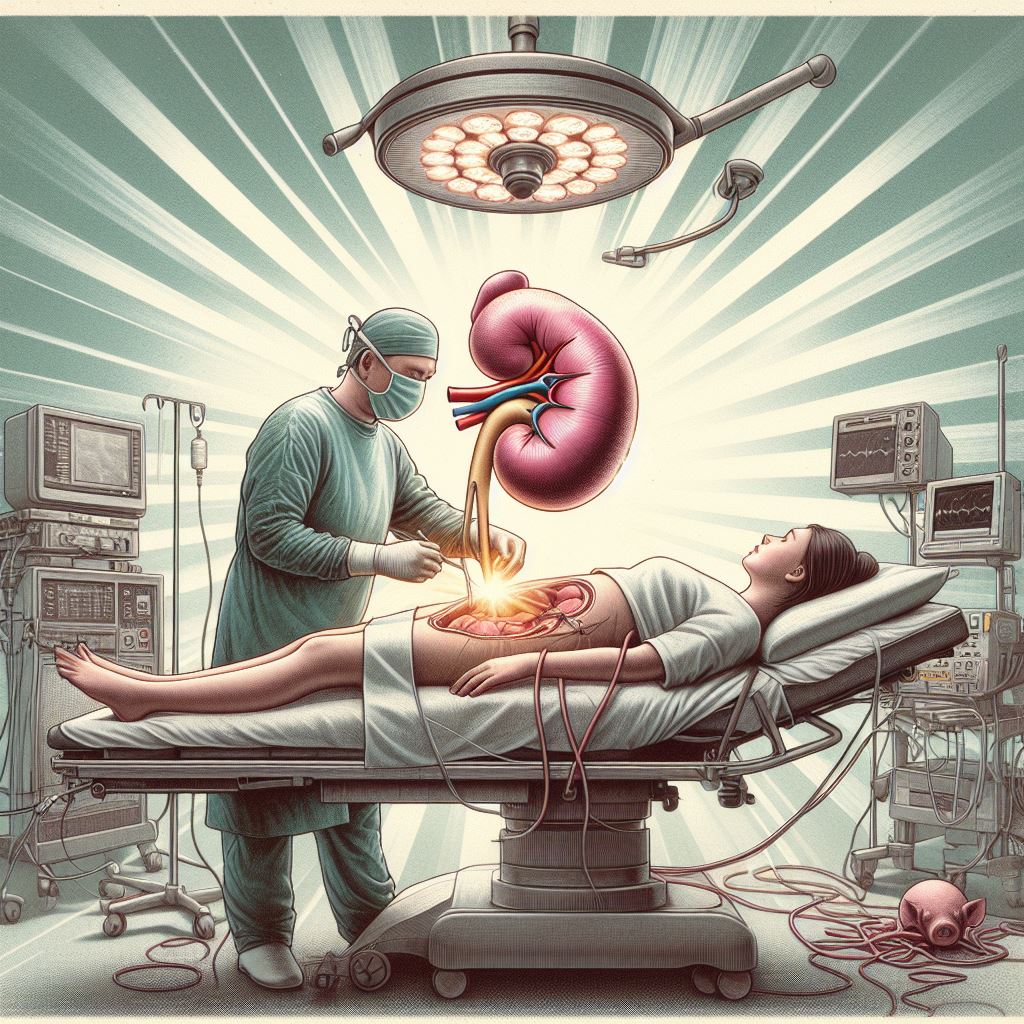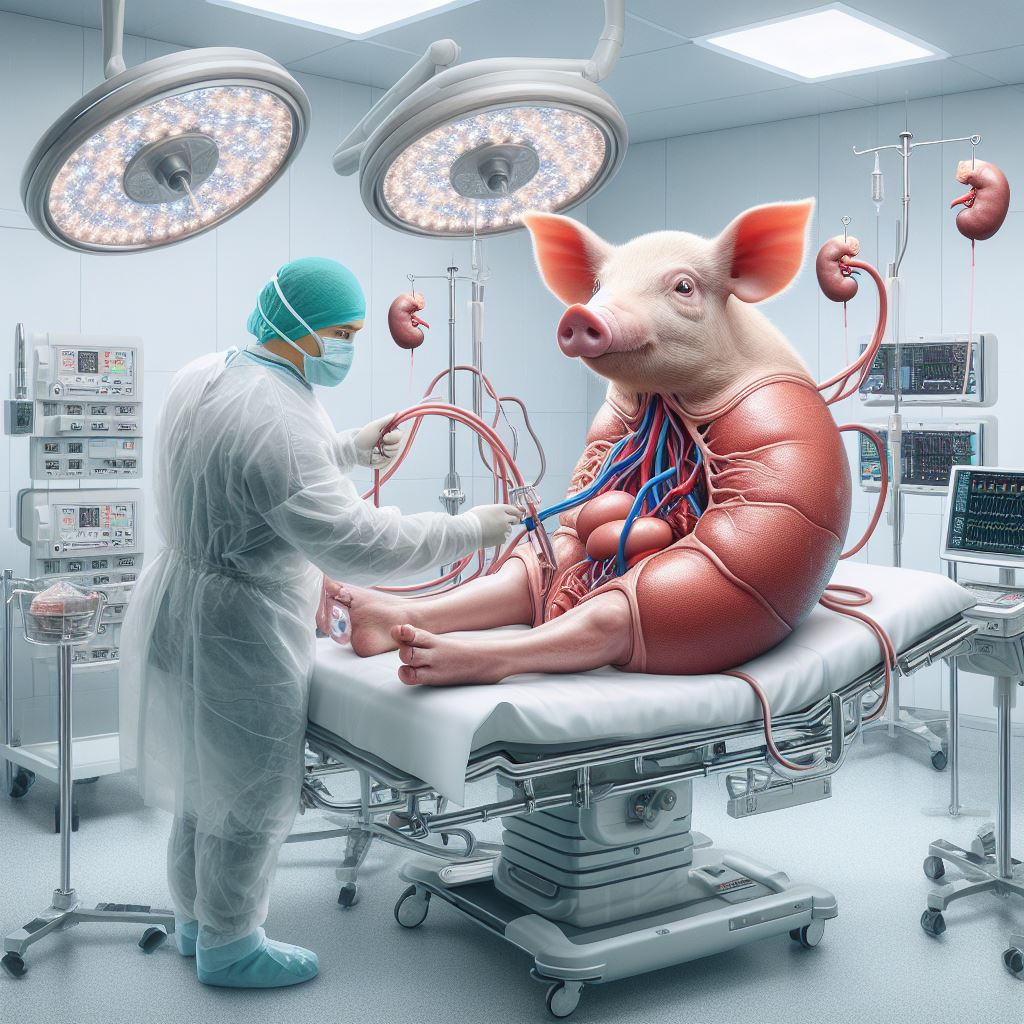pig kidney transplant
In an unprecedented medical breakthrough, surgeons at Massachusetts General Hospital have successfully transplanted a genetically modified pig kidney into a living human patient. This landmark procedure not only represents a significant advancement in the field of organ transplantation but also offers a glimmer of hope to millions suffering from end-stage renal disease.

A Leap Forward in Organ Transplantation
The recipient, a 62-year-old man, is reportedly recovering well following the surgery. This event is hailed as a potential solution to the global shortage of human organs for patients in dire need of transplants. The success of this transplant is the culmination of decades of research and development in the field of xenotransplantation, the process of transplanting organs or tissues between different species.
Overcoming the Challenges
The pig kidney used in the transplant was provided by eGenesis, a biotech company that utilized CRISPR-Cas technology to edit the pig’s genes, enhancing compatibility with human bodies and eliminating the risk of infection from porcine endogenous retroviruses. This genetic editing is crucial as it addresses the human body’s natural tendency to reject foreign tissues
A Beacon of Hope
The patient, Richard “Rick” Slayman, had previously undergone a kidney transplant from a human donor in 2018, which began to fail five years later. Facing a return to dialysis and its associated complications, the pig kidney transplant offered an alternative that could significantly improve his quality of life.

The Future of Xenotransplantation
While this procedure marks a major milestone, it also opens the door to further research and development in the field. The success of pig-to-human kidney transplantation could pave the way for the use of other pig organs, potentially alleviating the organ shortage crisis.
Conclusion
The successful transplantation of a pig kidney into a human patient is a testament to the relentless pursuit of medical innovation. As we stand on the cusp of a new era in organ transplantation, we look forward to the possibilities that xenotransplantation holds for the future of medicine.

